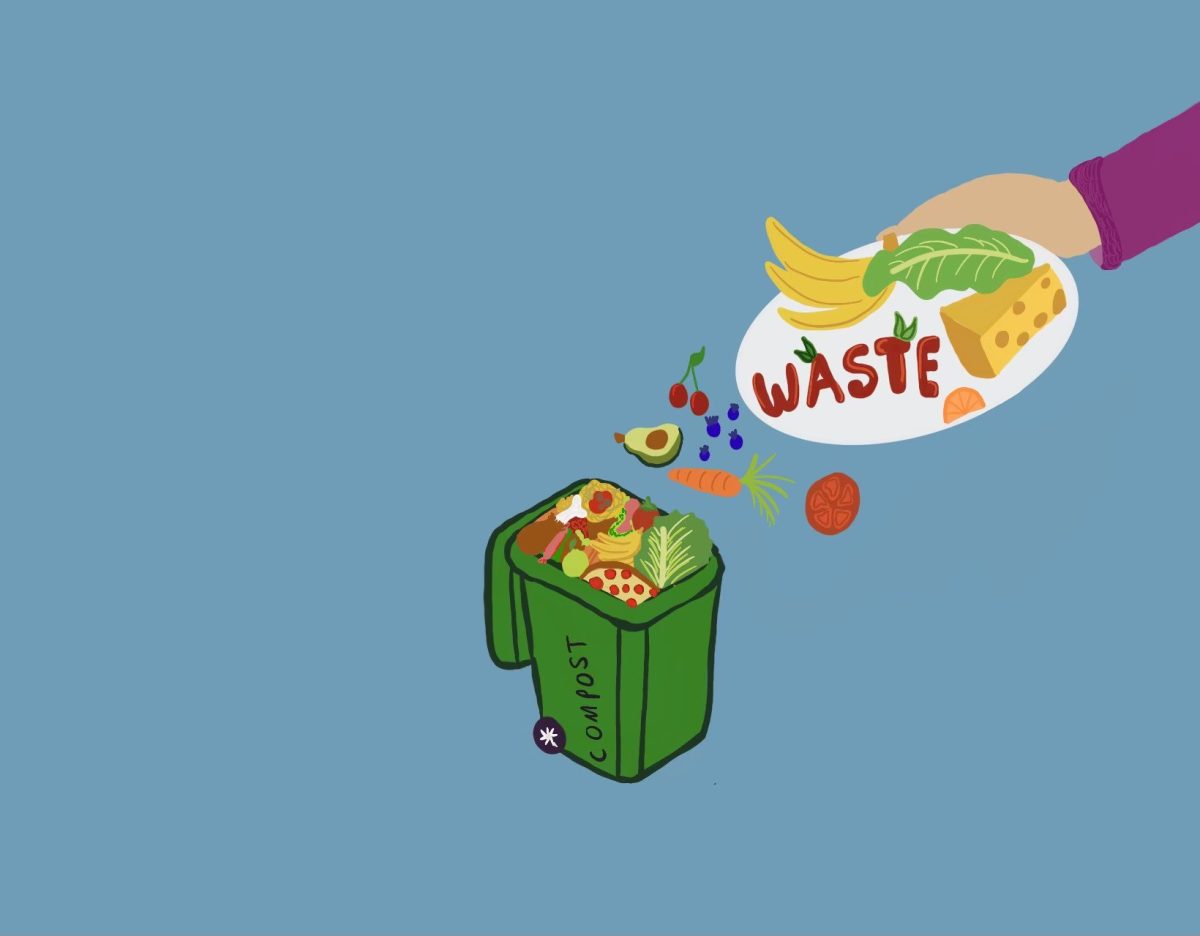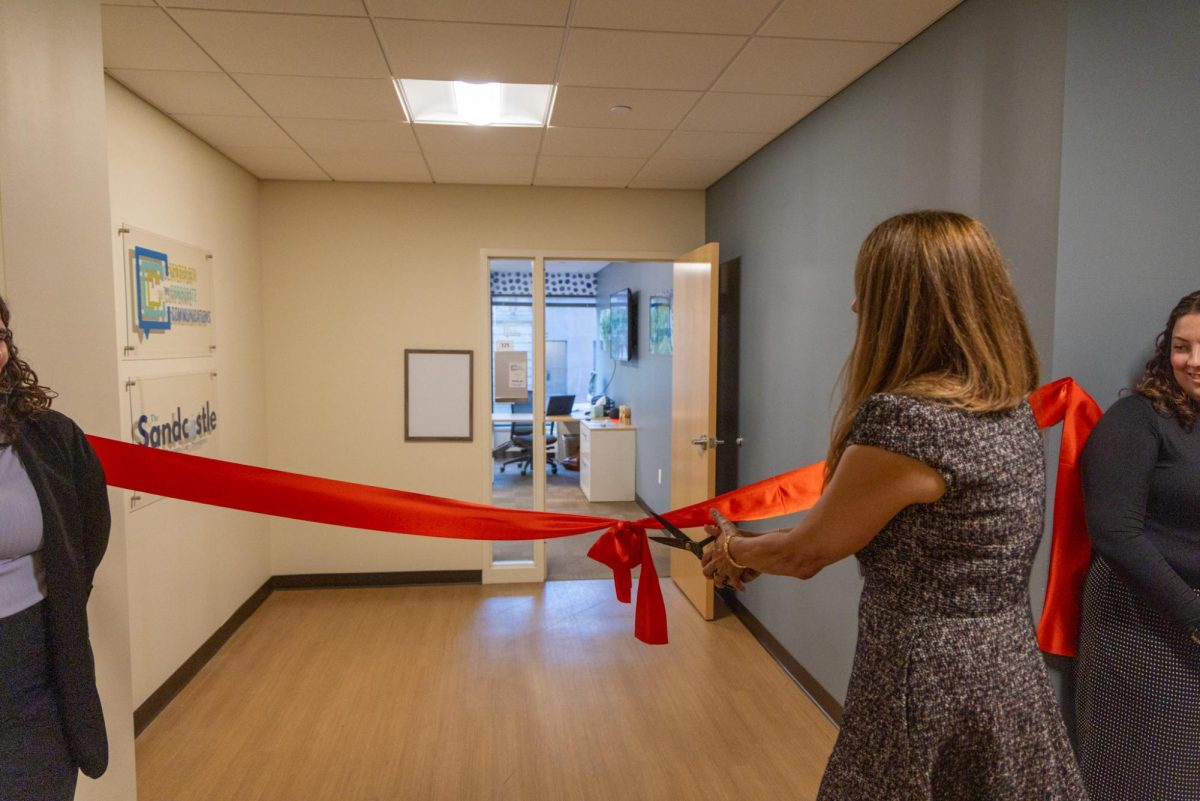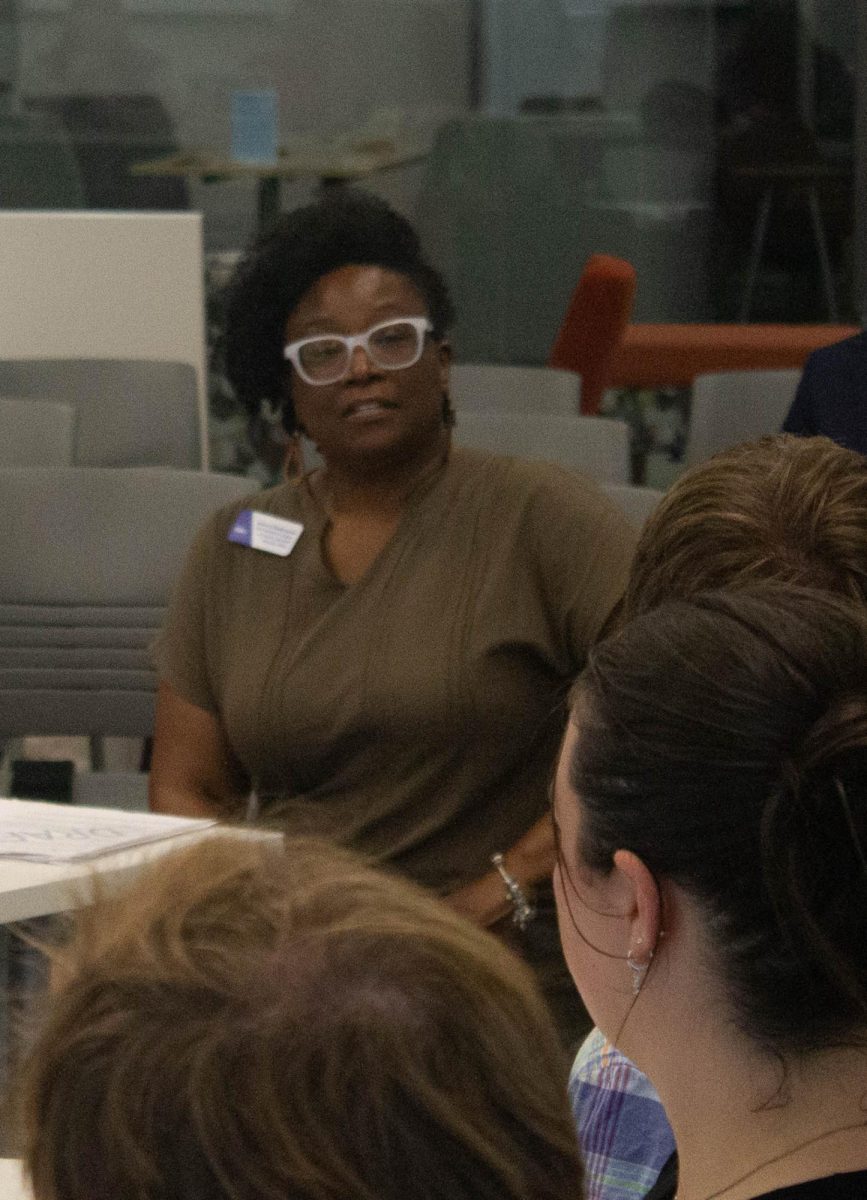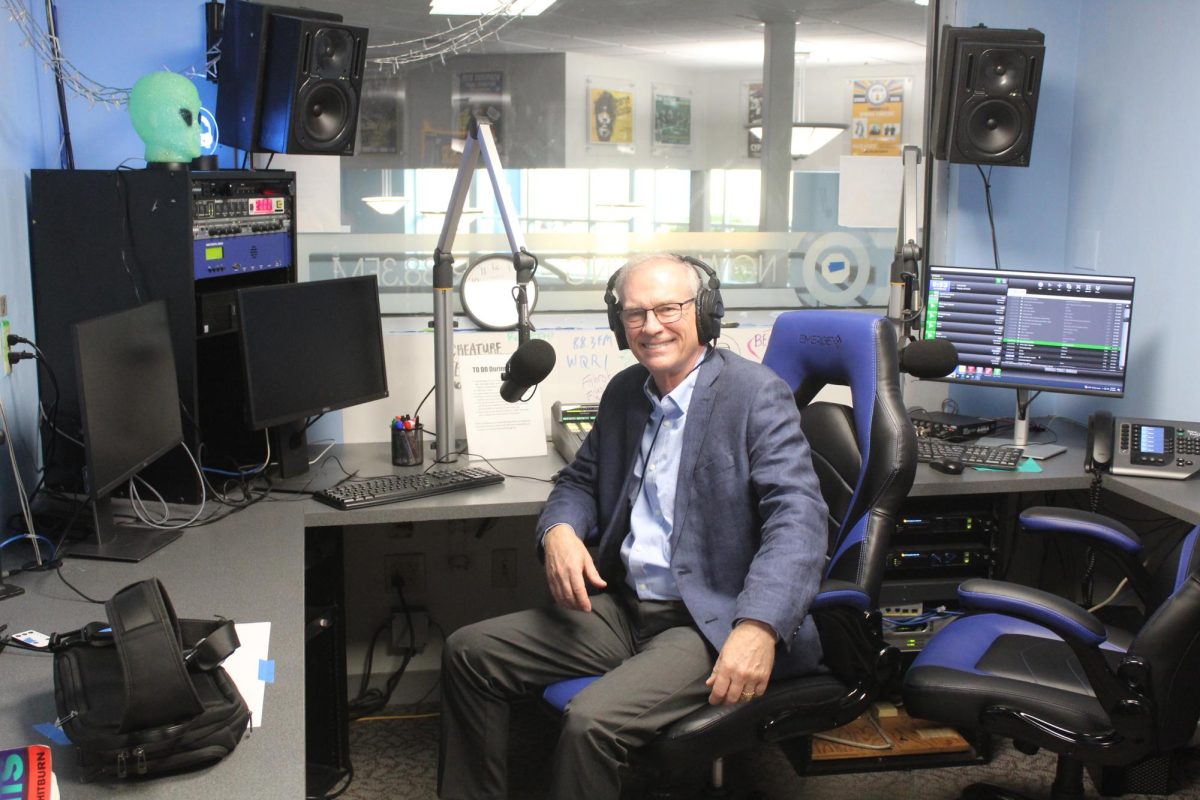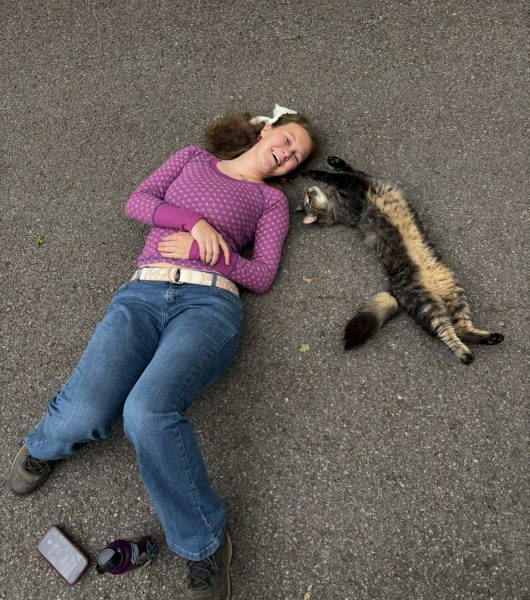Liv Horton, a sophomore architecture major at RWU, is the driving force behind a visionary solution that not only makes students accountable for their waste in Upper Commons, but also emphasizes the importance of valuing and appreciating the hard work of dining hall staff.
“Sustainability is going to be a big part of all of our lives,” said Horton. At the heart of the proposal is the idea of making students responsible for their own food waste. Horton envisions a system where students actively participate in the process of scrapping the food waste from their plates into compost bins. The act of personally disposing of waste will hopefully influence students to only take what they can consume. “You’re not only seeing your own personal waste, but you have to interact with it, and I think we are all accustomed to doing that at home,” Horton states.
Beyond the dining hall, the initiative instills a sense of personal responsibility in students. Learning how to properly manage and dispose of waste is a life skill that will transfer into eco-conscious choices in future endeavors. Upper Commons anticipates a significant reduction in overall food waste, and a more sustainable campus. Hani Gittens, RWU Catering Assistant Manager mentioned that, “Some students ask, do we always have to scrap it? And the answer is no, not if you eat everything.”
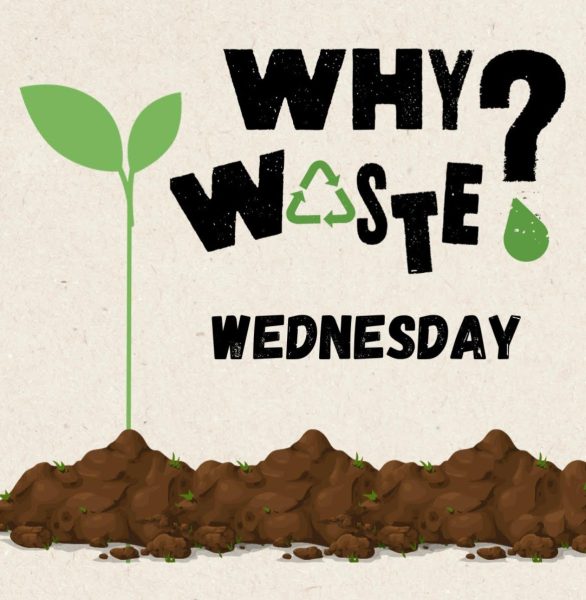
The proposal goes beyond waste reduction; it addresses the issue of disrespect and neglect faced by the dining hall staff. Horton notes, “The main drive for me is how we treat our staff here.” Horton describes plates stacked upon plates, food and drinks being spilled on workers as a result of a student’s rush to leave the dining hall. Due to the current set up, there lacks a relationship between the dishwashing staff and the students. “There is no face-to-face personalization that goes on there, where you can’t really see them and say thank you,” Horton states. She also emphasizes the need for a cultural shift in how students perceive and interact with the workers, advocating for a more appreciative and respectful atmosphere.
One of the immediate benefits of this proposal is the relief it brings to dining hall staff during peak mealtimes. With students taking charge of separating their waste, the staff can focus on providing efficient service, especially during rushes, creating a smoother dining experience for everyone.
Bonappetit has coined the phrase “Why Waste Wednesday.” To implement this change successfully, on November 29th, 2023, composting bins will be placed in front of the conveyor belt and students will be guided in how to properly dispose of their waste.
“I got my second boost of confidence when I went to Baypoint Dining for the first time this year and I saw that the students are responsible for clearing their own plates, if we are doing it at one of our locations, why not here?” Horton said.
This initiative aims to create a dining experience that goes beyond the act of eating. As Roger Williams University embraces this forward-thinking solution, it demonstrates how a simple change in daily routine and responsibility can lead to a more sustainable and respectful dining community.
To stay up to date on all things Bonappetit, Check out the official Instagram, @bonappetit_rwu.


